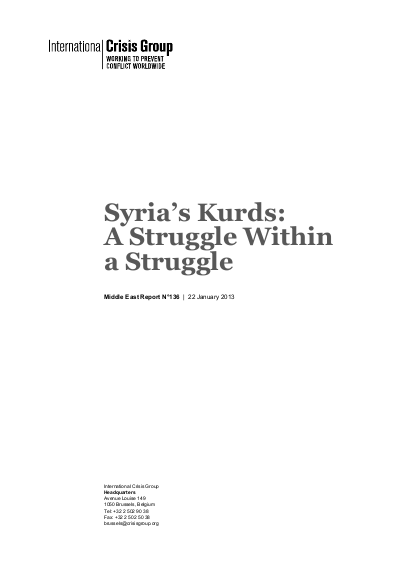
Roughly 10 per cent of Syria’s 23 million people are ethnic Kurds, 23 located mainly in the Hasake region in the north east and in large non-contiguous pockets along the Turkish border reaching to Afrin in the north west, as well as in the metropolitan cities of Aleppo and Damascus and a few secondary towns as far south as Quneitra. Adding to this lack of geographical continuity, Syrian Kurds, much like Kurds across the Middle East, are politically fragmented and have given rise to a multitude of factions prone to align themselves with competing regional powers. Since the onset of the 2011 Syrian uprising, dramatic changes within the Kurdish political landscape reflect renewed efforts by the Kurds to assert themselves as important political players in their own right, an endeavour that has faced significant hurdles.